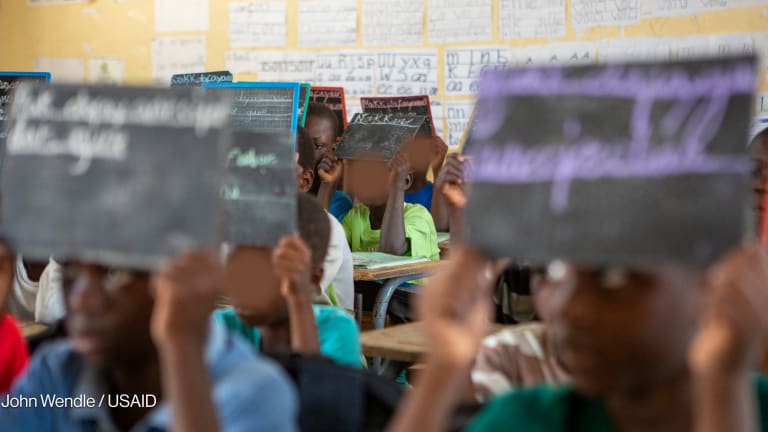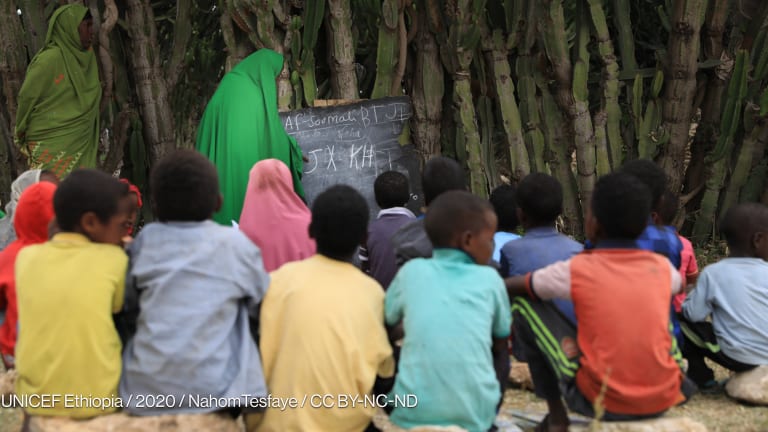Put two physicists together from anywhere in the world, and they’ll have a common language through which to communicate. The math, metrics and paradigms are standard. Education, however, toes to the other extreme: even professionals from the same city can struggle to understand one another’s methods.
The international community lacks a common language to talk about education, and donors are often part of the problem — working with their own instruments and metrics, said Andreas Schleicher, director for the Directorate of Education and Skills at the Organization for Economic Cooperation and Development, on Sunday.
A physicist and a statistician who helped develop the OECD’s Program for International Student Assessment, Schleicher said donor’s inconsistency with metrics is complicating efforts to improve education and causing unnecessary confusion in countries that receive outside aid.








